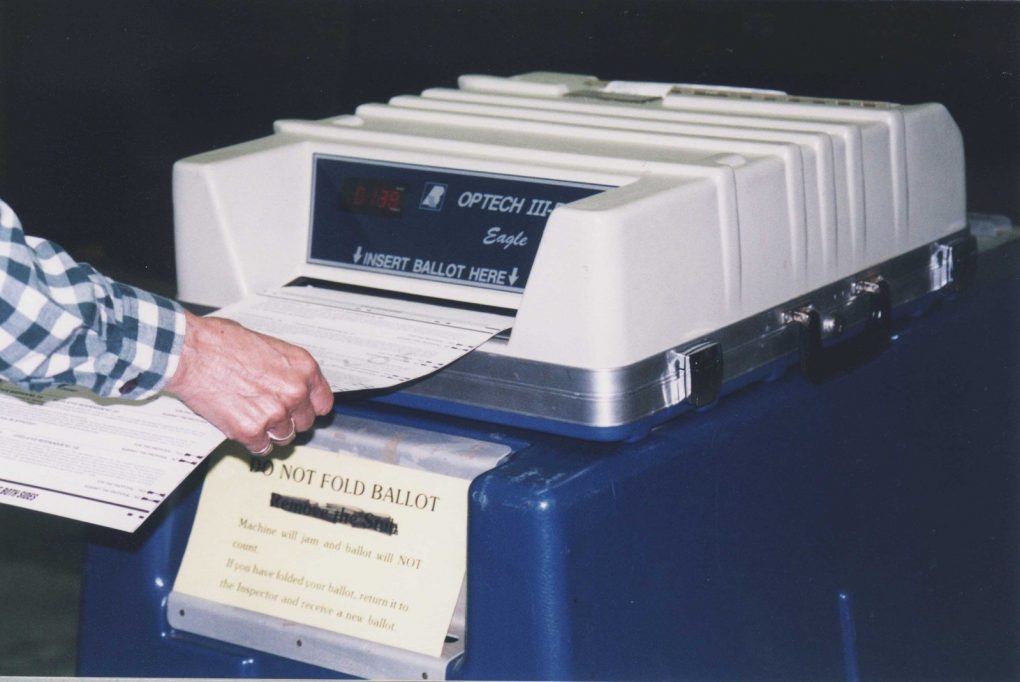Are you watching your language? I’m talking about the language of your campaign as you reach out to voters. In your advertising, speeches, and one-to-one interactions, are you conversing with or talking down to your audience?
How do you talk down to an audience? By speaking above them. For example, it’s tempting to sprinkle your messages with political jargon. After all, as a candidate, you’re likely steeped in the lingo and acronyms of the various policies and regulations related to your platform.
And while you might know the ins and outs of these terms, many voters may have no idea what you’re talking about.
The same thing applies when you’re talking about topics that are not widely known. For example, we worked with a local candidate who liked to reference things about other officials in her campaign material. The problem was, she was referencing upcoming projects and backroom deals that were not common knowledge to the public and voters at large. Reading this material without context made her statements seem like ramblings. It certainly didn’t help her messaging.
Here’s the thing: clarity wins campaigns
Voters want to feel connected to your cause. When they hear complex language or jargon from a candidate, they might feel alienated. Instead of speaking to them, you’re speaking above them.
“The words that come direct from the people are the greatest… If you substitute one out of your own vocabulary, it disappears before your eyes.” – Dorothea Lange
Here’s an example of being too complicated: A candidate for city council (who was a lawyer) mentioned the term “fiscal rectitude” on his website’s issues page. Sounds impressive, right?
Well, it sounds like it might go over most voters’ heads.
But instead of the phrase “fiscal rectitude,” what if he switched to “managing the budget wisely”? Will that message hit home with more voters? Absolutely. Will it be more effective? Without a doubt.
Or what about a local candidate who frequently mentions “Home Rule” when discussing housing standards. To the uninitiated, this term might sound complex or overly technical. (Or maybe it’s a baseball term?)
But what if, instead of “Home Rule,” the candidate explained it as “giving our city the power to make its own rules for our unique needs”? Suddenly, the concept becomes clearer and more relatable. That’s the type of quote you can use on a web page, with a pull quote or simple graphic.
The key takeaway? Your messaging is not a platform for showcasing political lingo or an extensive vocabulary.

Five Tips to Simplify Your Political Communication
Use Plain Language: Replace complex jargon and acronyms with straightforward, simple language that everyone understands.
Explain Terms Clearly: When you must use specific terms, immediately follow them with a clear, concise explanation.
Be Direct and Concise: Cut down on wordiness and quickly get to the point.
Use Relatable Examples and Stories: Incorporate stories or examples that illustrate your points and resonate emotionally with voters. A story about a local resident affected by your policies can be more effective than abstract statistics.
Engage and Interact: Invite others to share their thoughts and experiences related to the campaign topics discussed.
Make every word count
If the above examples were not enough, here are more ways to make sure your messaging is clear across all your campaign platforms.
- Cut the Complexity: Instead of saying, “We advocate for increasing public education funding,” try “We believe in more money for schools.” It’s direct, simple, and leaves no room for misunderstanding.
- Break It Down: Turn “our strategy includes multifaceted approaches to curb urban sprawl” into “we have a plan to keep our city’s growth smart and managed.”
- Keep It Relatable: Change “promoting sustainability initiatives to mitigate climate change impacts” to “Let’s work together to make our planet greener.”
- Straight to the Point: Instead of “Engagement in civic activities is paramount,” go for “Get involved. Your voice matters.” Short, impactful messages win on social media.
- Stories Stick: Don’t bombard listeners with data. Nobody’s going to remember numbers and statistics. Instead, share a relatable story about a single mom who benefits from your healthcare policy. It’s personal, memorable, and has a happy ending that ties into your efforts.
- Highlight the Real-World Impact: Say “Fix our roads for safer travels” or “Help us clean up our streets. Join us!” This quickly connects with the readers everyday lives and concerns.
Simplifying your language isn’t about dumbing down your messaging. With a more direct and personal approach, you come across as if you are engaging in a conversation rather than giving a lecture.
And nobody likes being lectured to.
Your success hinges on making every voter feel seen and heard. So, strip away the complexity and just speak the language of your voters.
It’s that simple!
« Creating a Political Campaign TimelineOnline Candidate provides affordable campaign websites, with campaigning tools and resources included. Get started today!
How To Remove A Volunteer From Your Online Campaign »
Tags: local politics, messaging







